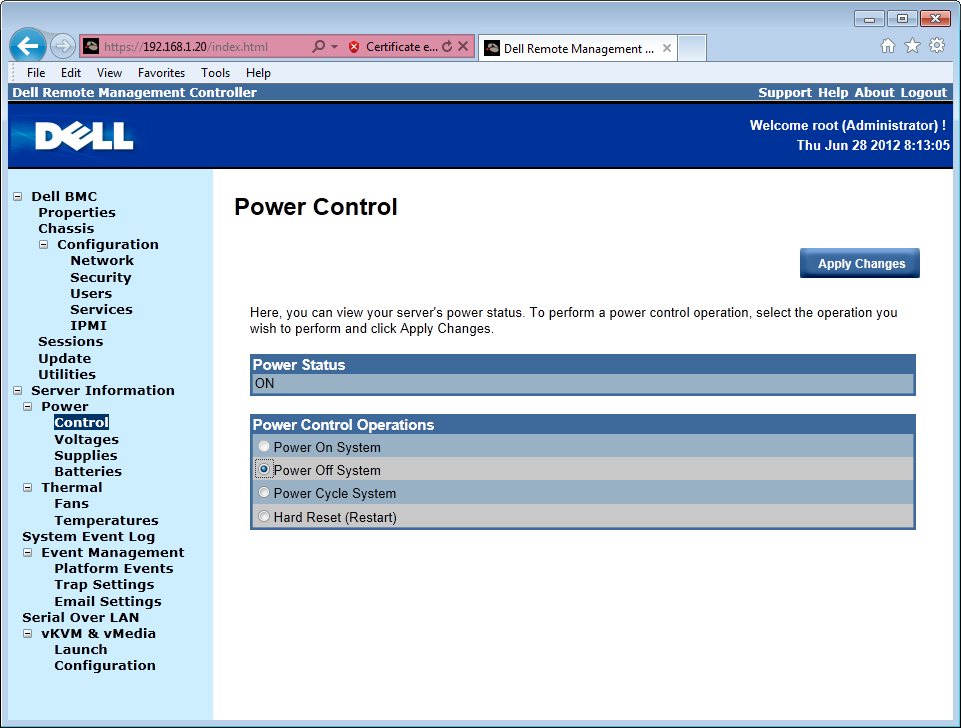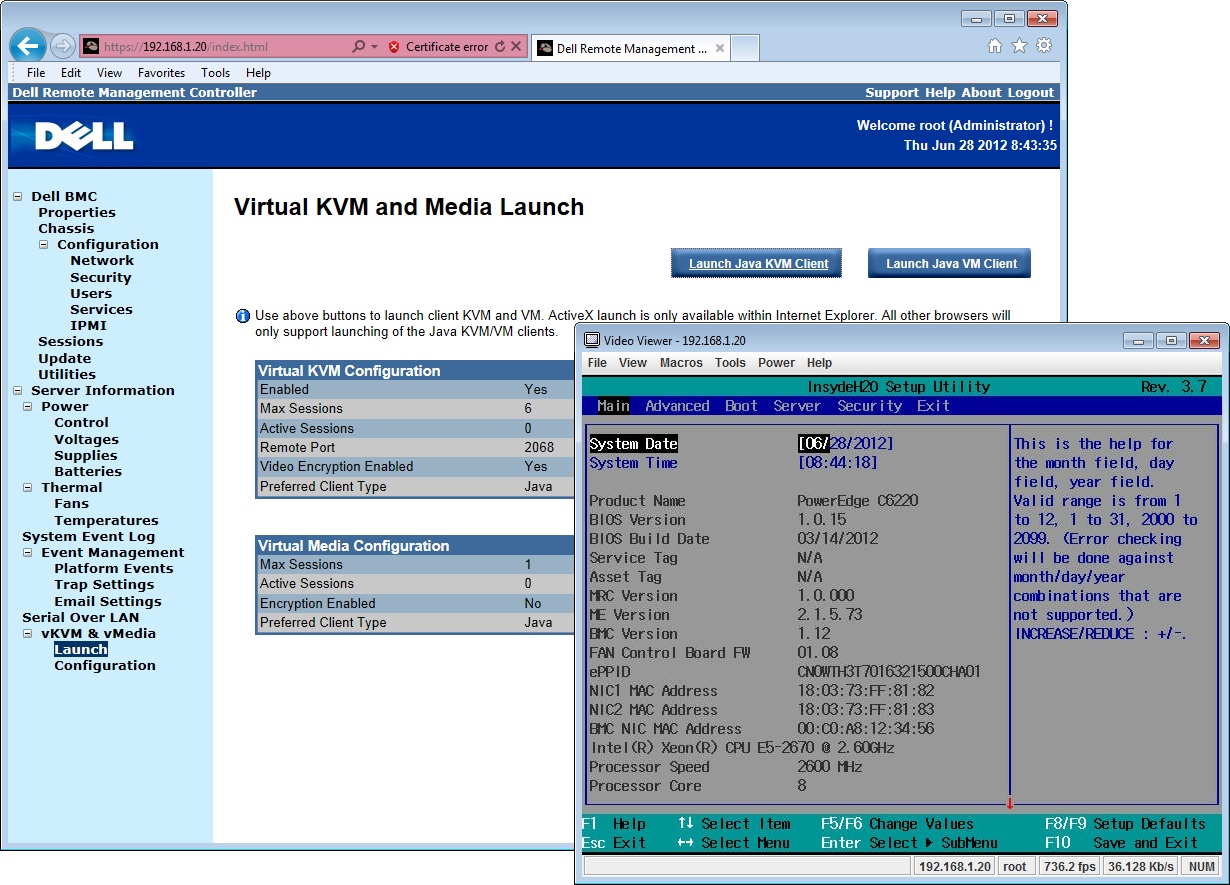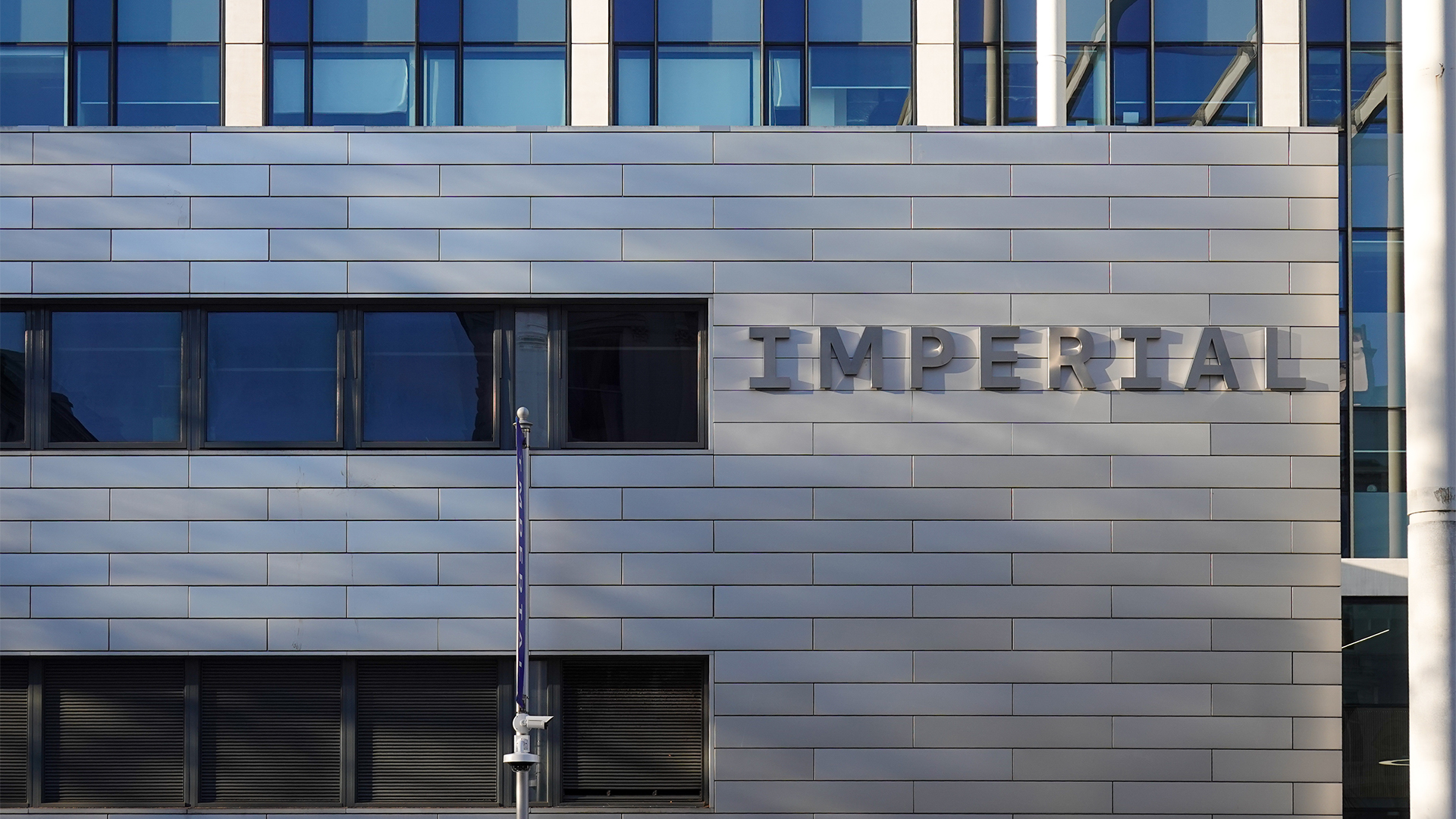Dell PowerEdge C6220 review
Dell’s cloud server squeezes four Xeon E5-2600 systems into 2U of rack space. Dave Mitchell finds out if the PowerEdge C6220 can be used as a high density alternative to individual blade servers.
The C6220 offers a high density rack with plenty of E5-2600 Xeon muscle under the covers. It comes with impressive power to processing ratio, but is not much cheaper than a set of standard 1U rack servers. Remote management features and build quality are also basic, which makes it hard to recommend.

Expansion and storage potential
Each node has a single X16 PCI-e Gen3 slot supporting a half-height, half-length card. If you want more, the dual height nodes provide two X16 PCI-e Gen3 slots and have room for full-length cards.
Basic storage options are provided by the motherboard's Intel C602J chipset which offers six 3Gb/sec SATA II ports and supports mirrors, stripes and RAID-5 arrays. Dell has an optional LSI 9265-8i PCI-e card which adds SAS to the mix.
Each node has a mezzanine card connector as well. Dell offers an LSI 2008 SAS card plus Gigabit and 10-Gigabit options but bear in mind this slot is only active in dual CPU configurations.
The chassis has room up front for up to twelve hot-swap LFF hard disks. The backplane is split vertically into four groups so each node has three dedicated drive bays assigned to it.
Dell offers a chassis version with 24 SFF bays so each node can have six drives. A new feature of this model is an expander backplane option that allows any number drives to be assigned to specific nodes regardless of their physical location.

No power usage monitoring but remote management provides power controls for each node
Low power usage
The chassis has room for a pair of hot-plug power supplies and our system had two 1200W modules. Dell also offers a 1400W option for heavier workloads.
Sign up today and you will receive a free copy of our Future Focus 2025 report - the leading guidance on AI, cybersecurity and other IT challenges as per 700+ senior executives
To test power consumption, we hooked the C6220 up to our inline power meter. With each node loaded with Windows Server 2008 R2 and idling along we saw first, second, third and fourth nodes draw a total of 135W, 200W, 290W and 350W, respectively.
Using the Sisoft Sandra benchmarking app to push the CPUs to maximum load on each node we saw power peak at 364W, 671W, 945W and 1242W. Dell estimates the C6220 will save you around 100W of power over four servers.
In our review Boston Value Series 380 G8 which has the same CPUs and memory configuration, we saw it pull 162W in idle and 349W under extreme load. An average peak of 310W per node for the C6220 shows power savings can be made.
The C6220 is reasonably well constructed but not to the same level as Dell's standard PowerEdge servers. All cooling is handled by four fans behind the disk backplane but these are not hot-swappable and don't have integral power connectors.

Node remote control and virtual media services come as standard and not as optional upgrades
Dave is an IT consultant and freelance journalist specialising in hands-on reviews of computer networking products covering all market sectors from small businesses to enterprises. Founder of Binary Testing Ltd – the UK’s premier independent network testing laboratory - Dave has over 45 years of experience in the IT industry.
Dave has produced many thousands of in-depth business networking product reviews from his lab which have been reproduced globally. Writing for ITPro and its sister title, PC Pro, he covers all areas of business IT infrastructure, including servers, storage, network security, data protection, cloud, infrastructure and services.
-
 ‘Not a shortcut to competence’: Anthropic researchers say AI tools are improving developer productivity – but the technology could ‘inhibit skills formation’
‘Not a shortcut to competence’: Anthropic researchers say AI tools are improving developer productivity – but the technology could ‘inhibit skills formation’News A research paper from Anthropic suggests we need to be careful deploying AI to avoid losing critical skills
By Nicole Kobie Published
-
 CultureAI’s new partner program targets AI governance gains for resellers
CultureAI’s new partner program targets AI governance gains for resellersNews The new partner framework aims to help resellers turn AI governance gaps into scalable services revenue
By Daniel Todd Published
-
 Imperial College wants to train larger, more complex AI models – so it's teaming up with Digital Realty on a UK-first project
Imperial College wants to train larger, more complex AI models – so it's teaming up with Digital Realty on a UK-first projectNews Digital Realty’s Woking data center has been selected to run the project
By Emma Woollacott Published
